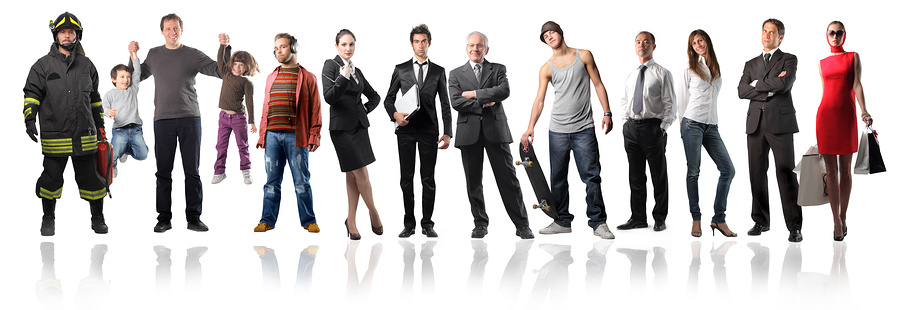Defining social anxiety
Overview
Defining social anxiety is challenging as there are several related terms that people tend to use interchangeably:
- Social phobia (SP): "Phobia" comes from a Greek word that means "morbid fear". Therefore, social phobia is typically used when talking about a fear of social situations. In particular, the fear is that one may embarrass them self when around other people. This can also include "specific social phobias", such as the fear of public speaking.
- Social anxiety: experiencing feelings of anxiety in social situations. This anxiety can manifest itself in several ways, including shyness, worry, stress, discomfort, physical symptoms such as sweating or blushing, etc.
- Social anxiety disorder (SAD): a clinical diagnosis of social anxiety or social phobia. Generally, a clinical diagnosis indicates that one experiences symptoms to such a degree that it has a significant negative impact on their day to day life.
What do these terms have in common? Generally, there is a fear of being negatively judged by others, which can impact both public and private life. People with social anxiety may avoid, or endure with stress, common everyday situations such as conversations with people they don't know, expressing their opinion, or attending meetings or classes (more information on the signs of social anxiety). Furthermore, sufferers tend to be highly self-conscious and self-critical in the situations that they fear.
Social anxiety disorder
SAD was first included in the DSM in 1980 (the DSM is the standard guide that psychologists and psychiatrists use to classify mental disorders). It is difficult to say with certainty exactly how many suffer from SAD, with various studies quoting numbers from 2% to 15% of the population. One reason for these contradictory numbers is that all people fall somewhere along a sliding scale, and it is difficult to set a cut-off point where people on one side have a social anxiety "disorder", and people on the other side do not. Almost everyone has the occasional anxious thought in a social setting. (In fact, a complete lack of inhibition in public can a problem in and of itself.) Some people experience such extreme fear and stress in social situations that it severely impacts their ability to live a happy and normal life.

Regardless of the actual clinical diagnosis, a few things are clear:
- Social anxiety can affect anyone: men and women, young and old, celebrities and the guy next door, a new intern or the company CEO, etc. It is tempting to think it only applies to outwardly shy and anxious people, but this is simply not the case.
- Unfortunately, only a minority of people who experience symptoms actually seek help. There are a number of reasons for this, including the lack of availability. Furthermore, by its very nature, people who suffer from it may be too shy or embarrassed to attend the therapy or support groups that they would benefit from.
- Studies show that if left untreated, symptoms can persist over one's lifetime. In other words, it doesn't simply "go away" if left alone.
- There are high-quality and effective methods to treat social anxiety. In many cases, these treatments have been shown to help people gain confidence, and lead happier and more fulfilling lives.